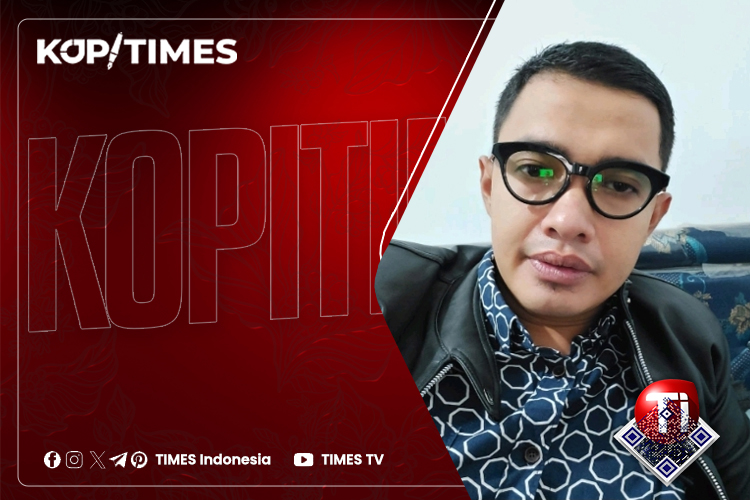
TIMESINDONESIA, BANDUNG – So abstruse, in my opinion, that it could be to adhere to a proposition positing that doing the hermeneutics of suspicion is analogous to having negative thinking, prejudice, or other forms of assumptions alike. Hermeneutics, coined by Paul Ricoeur, and Deconstruction, pioneered by Derrida are among the methodologies utilized to carry out critical (discourse) analysis.
Being critical is comparable to being willing to use our reasoning brain to outperform its reasoning capacities as well as sharpen the sense of reality. If we hinder our brain from training our critical acumen, in particular, within a situation where there is always a possibility for us to be fooled, deceived, or manipulated, we will definitely be consenting to be a 24/7 ungrudging victim acquiescing at perfect ease.
Advertisement
I personally contend that children and young learners are, never seemingly, encouraged, or presumably not allowed, to have a critical and reasoning mind nor perform critical thinking due to its potential threat for the interested people in questioning how they have been taught and upbrought. Should they start asking a question that is just slightly a little critical, they are immediately silenced by proverbial, wise-maybe-unwise words as if whatever they ask, if critical or questioning or opposing or defying, were constantly considered wrong, proven mistaken.
Consequently, children are only enabled to stick to lower-order thinking skills revolving around “remembering, understanding, and applying”, and it appears improbable to ever reach the state of analyzing, evaluating, let alone, creating. If this condition does not seem to improve for keeps, I believe sooner or later they will be replaced by the internet of things (a form of artificial intelligence) which can even do things up to the state of analysis.
In terms of pragmatic analysis, children are not permitted to go beyond the locutionary force circulating around the meaning, exactly in its literal sense, of the utterance “only” regardless of the motives that the speaker may hide in the utterance uttered or the potential impacts to come about as it is heard or exposed to the interlocutors. How come? Because both illocutionary and perlocutionary acts (speaker’s intention and possible effects) require a pinch of the arts of hermeneutics that is, for sure, somewhat suspicious in nature.
Moreover, in case they step ahead, where the critical minds are uplifted onto a whole higher sky, the children, for certain, will benefit more from most of the post-structuralist theories making their brains more muscular and turning their reasonings into cloud nine. Eg. The paradoxical logic, part of deconstruction methodology, forges their critical stances and ripens their skeptical acumen.
The arena theory helps them flesh out what cannot yet be completed by Cooperative Principle, Speech Acts Theories, Implicature, and so forth associated with pragmatic analyses, and many other theories leading their brains to enjoy the healthy brain club. However, words will just remain as an imaginative proposal if a corruptive colonial mentality is still around, over affirmed power relation is continued, and metaphysical discourses are abused and overused. (*)
***
*) Oleh : Andre Anugrah, Dosen Susatera, Peneliti Bahasa, dan Mahasiswa Doktoral UPI Bandung.
*)Tulisan Opini ini sepenuhnya adalah tanggungjawab penulis, tidak menjadi bagian tanggungjawab redaksi timesindonesia.co.id
*) Kopi TIMES atau rubik opini di TIMES Indonesia terbuka untuk umum. Panjang naskah maksimal 4.000 karakter atau sekitar 600 kata. Sertakan riwayat hidup singkat beserta Foto diri dan nomor telepon yang bisa dihubungi.
*) Naskah dikirim ke alamat e-mail: [email protected]
*) Redaksi berhak tidak menayangkan opini yang dikirim.
**) Ikuti berita terbaru TIMES Indonesia di Google News klik link ini dan jangan lupa di follow.
**) Ikuti berita terbaru TIMES Indonesia di Google News klik link ini dan jangan lupa di follow.
| Editor | : Hainorrahman |
| Publisher | : Sofyan Saqi Futaki |

